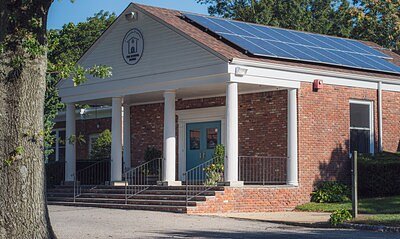
Small School, Big Ideas: The School House Aims to Disrupt Education
A New York school pioneering a student-centered, project-based approach has been named a finalist for a prestigious national education prize, sparking debate about the future of learning.
Small School, Big Ideas: The School House Aims to Disrupt Education
By Helen Davis – Healthcare Innovation & Market Shifts
NEW YORK – In an era increasingly focused on personalized medicine and tailored solutions, a small New York school is applying the same principles to education. The School House, a non-profit institution pushing the boundaries of student-centered learning, has been named a finalist for the 2025 Yass Prize, a national award recognizing innovative educational models. This recognition isn’t just a local victory; it’s igniting a broader conversation about the future of education and whether traditional systems are adequately preparing students for a rapidly changing world.
Founded on the principles of emergent curriculum, The School House distinguishes itself by prioritizing student interests and fostering a learning environment where projects are driven by curiosity rather than rigid lesson plans. This approach, while gaining traction in alternative education circles, remains a significant departure from the standardized testing and curriculum-driven models prevalent in many public schools.
“We believe that children learn best when they’re genuinely engaged and passionate about what they’re studying,” said a school administrator. “Our goal isn't to fill them with facts, but to equip them with the skills and critical thinking abilities they need to navigate complex challenges.”
A Different Kind of Curriculum
The American Emergent Curriculum (AEC) at the heart of The School House’s approach isn’t about abandoning core academic standards. Rather, it’s about how those standards are met. Instead of delivering pre-packaged lessons, teachers act as facilitators, guiding students through self-directed projects that integrate multiple subjects. A student interested in marine biology, for example, might design and build a miniature ecosystem, learning about biology, chemistry, engineering, and even business principles along the way.
“It’s a move away from ‘teaching at’ students to ‘learning with’ students,” explained an education consultant familiar with the school’s model. “It’s about creating a learning environment where students are active participants in their own education.”
This shift, however, isn't without its challenges. Scaling such a model beyond a small, dedicated school community requires significant investment in teacher training and curriculum development. Furthermore, assessing student progress in a project-based environment requires a move away from traditional standardized tests. The School House relies on portfolios, presentations, and ongoing assessments to track student growth, a practice that some critics argue is more subjective than traditional methods.
A Growing Movement
The School House isn’t operating in a vacuum. It's part of a broader trend toward alternative education models, including microschools, homeschooling, and personalized learning. Driven by concerns about the limitations of traditional schools and a desire for more tailored learning experiences, these models are gaining traction among parents and educators alike.
“We’re seeing a growing disillusionment with the one-size-fits-all approach of traditional schools,” said a researcher specializing in educational innovation. “Parents are looking for options that cater to their children's individual needs and interests.”
The pandemic further accelerated this trend, as many families experienced firsthand the limitations of remote learning and the benefits of personalized instruction. As a result, the demand for alternative education options is likely to continue to grow.
Beyond Academics: Cultivating 21st-Century Skills
While academic rigor remains a priority, The School House also places a strong emphasis on developing 21st-century skills, such as critical thinking, creativity, collaboration, and communication. Students are encouraged to take risks, experiment, and learn from their mistakes. They are also given opportunities to develop their entrepreneurial spirit through hands-on projects and business ventures.
“We want our students to be not just knowledgeable, but also adaptable, resilient, and innovative,” said a teacher at the school. “These are the skills they’ll need to thrive in a rapidly changing world.”
The Yass Prize and the Future of Education
The Yass Prize, administered by the Center for Education Reform, recognizes schools and organizations that are pushing the boundaries of educational innovation. The prize isn't just about financial reward; it's about providing a platform for these schools to share their best practices and inspire others.
“The Yass Prize is a way to shine a spotlight on the schools that are doing the most innovative work in education,” said a spokesperson for the Center for Education Reform. “These schools are demonstrating that it's possible to create learning environments that are engaging, effective, and equitable.”
While The School House’s model may not be a panacea for all the challenges facing the education system, it offers a compelling vision for the future of learning. By prioritizing student interests, fostering creativity, and cultivating 21st-century skills, it’s demonstrating that it’s possible to create learning environments that empower students to reach their full potential. As the education landscape continues to evolve, schools like The School House will play a crucial role in shaping the future of learning. It remains to be seen whether this model can be scaled effectively and replicated in diverse settings, but the school’s commitment to innovation and student-centered learning is a testament to the power of disruptive thinking in education. The conversation sparked by their success will undoubtedly influence the ongoing debate about how best to prepare students for the challenges and opportunities of the 21st century.
